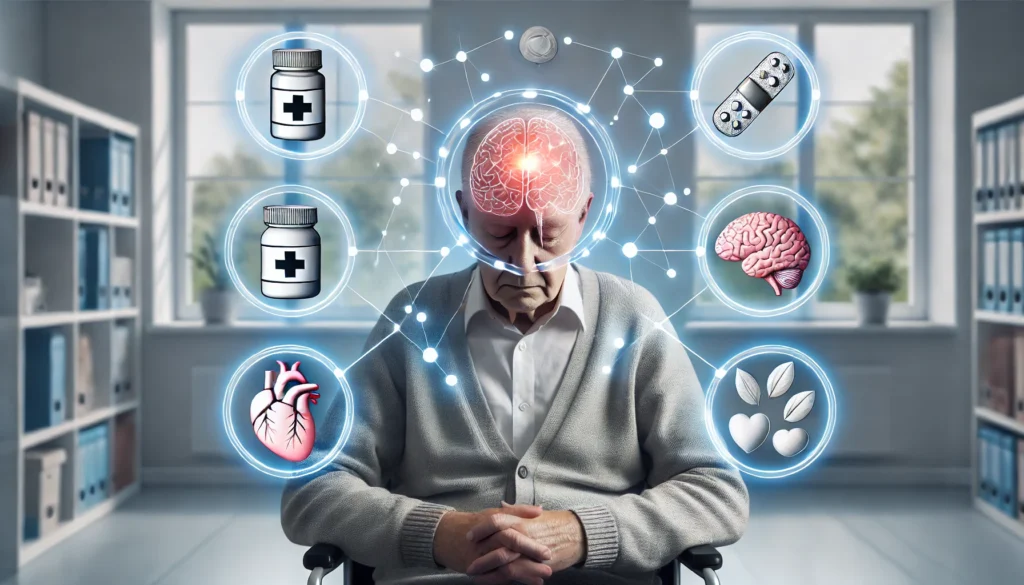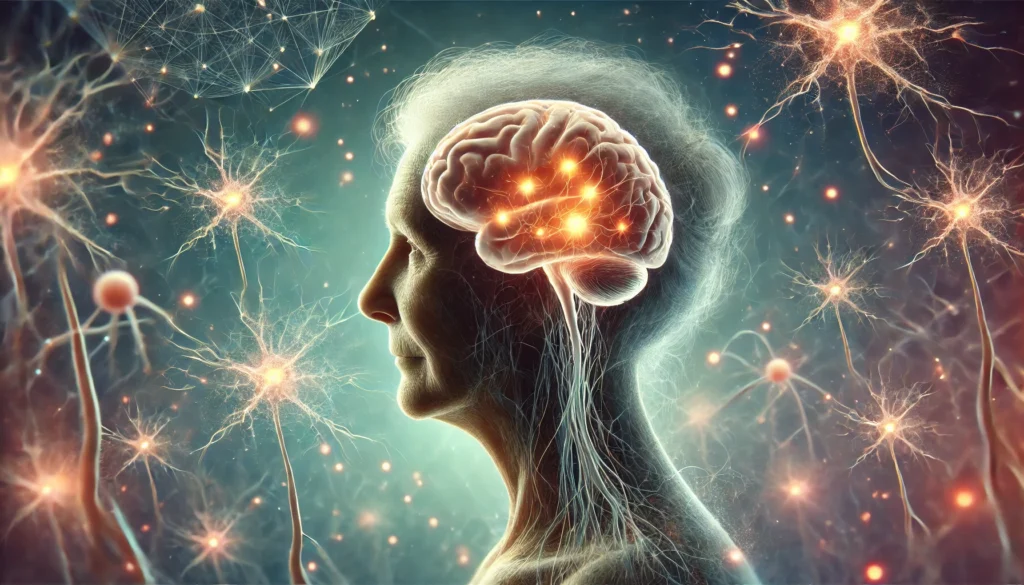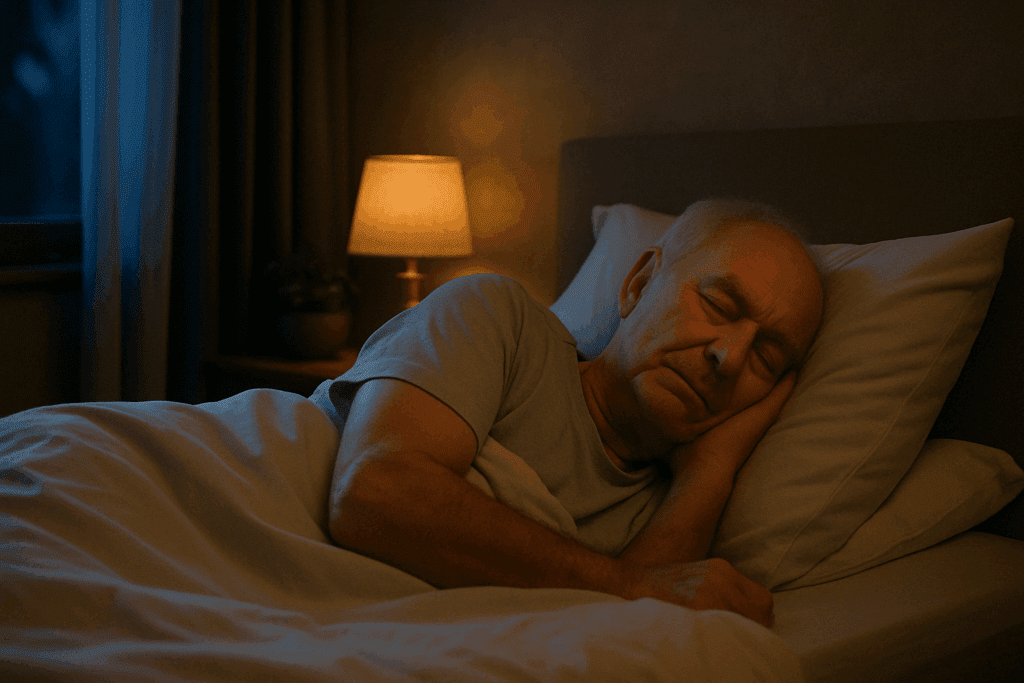Introduction
Memory is a cornerstone of identity, independence, and quality of life. For the elderly, memory loss can be distressing not only for them but also for their families. As life expectancy increases, more people are experiencing age-related memory decline, and concerns around dementia, cognitive impairment, and forgetfulness have become more pressing than ever. But is memory loss inevitable with age? Can it be slowed, prevented, or even reversed? Recent advances in neuroscience and aging research suggest that the answer is more hopeful than once believed. Understanding how to reverse memory loss in the elderly involves exploring not just neurological decline but the lifestyle, psychological, and environmental factors that contribute to brain health. In this in-depth exploration, we’ll dive into the root causes of memory loss, reveal the latest prevention strategies, and outline the best techniques to heal the brain after memory loss—from targeted nutrition and exercise to cognitive stimulation and advanced therapies. Whether you’re a caregiver, medical professional, or someone concerned about your own cognitive future, the science-backed insights in this guide can help illuminate the path to recovery and resilience.
You may also like: How to Stop Cognitive Decline: Science-Backed Steps for Prevention and Brain Longevity
Understanding the Nature of Memory Loss in Aging
The first step in knowing how to reverse memory loss in the elderly is understanding the nature of memory itself and how it changes with age. Memory is not a singular process but a complex function involving encoding, storage, and retrieval. Aging tends to affect these components differently. Age-related memory loss is typically marked by slower recall but preserved recognition, whereas more concerning memory loss disorders may involve confusion, disorientation, and significant disruption of daily life.
One common fear among older adults is that forgetting words or misplacing items may signal something serious. While such lapses can be normal, distinguishing between benign forgetfulness and short term memory loss dementia is critical. This difference can inform whether the issue is part of natural aging or a sign of a memory loss disease like Alzheimer’s or vascular dementia. Knowing what disease causes memory loss can help guide proper diagnosis and treatment early.
Importantly, memory decline doesn’t occur in a vacuum. Chronic stress, poor sleep, sedentary lifestyle, nutritional deficiencies, and social isolation all contribute to weakening cognitive resilience. As such, old age memory loss should be addressed holistically—through both medical evaluation and lifestyle intervention.

What Causes Memory Loss in the Elderly?
While many assume memory decline is purely a function of aging, it’s often exacerbated by modifiable risk factors. The most common causes include neurodegenerative diseases, medication side effects, mental health conditions, and environmental influences.
Diseases such as Alzheimer’s, Parkinson’s, and Lewy body dementia directly impact brain structure and function. Vascular issues such as mini-strokes or poor circulation to the brain can also impair memory. Meanwhile, depression and chronic anxiety have a powerful negative effect on short-term and long-term recall. Social withdrawal—particularly relevant in the context of “does not talking lead to memory loss”—is increasingly being recognized as a significant cognitive risk. The brain is a social organ; lack of verbal interaction reduces stimulation and may accelerate memory loss in elderly individuals.
Certain medications—especially sedatives, antihistamines, or those used to treat high blood pressure—can also impact cognitive clarity. These external triggers can interact with genetic and epigenetic factors, forming a tangled web of cause and effect that influences memory performance over time.

Can Memory Loss Be Reversed? A Scientific Look
For decades, the prevailing wisdom suggested that brain cells cannot regenerate, and that once lost, memory is gone for good. However, new research has overturned this outdated belief. Neuroplasticity—the brain’s ability to rewire and adapt—remains active well into old age, and neurogenesis (the creation of new neurons) can occur in the hippocampus, the brain’s memory center.
So, can memory loss be reversed? In many cases, yes—particularly when the memory issues are due to reversible causes such as stress, medication side effects, or nutritional deficiencies. Even in cases of mild cognitive impairment or early dementia, aggressive lifestyle and therapeutic interventions can slow progression and even improve function.
Understanding how to reverse memory loss from stress is especially important because stress-related cortisol elevation has a direct damaging effect on the hippocampus. By learning how to manage stress and support the nervous system, we can begin to reverse this trend and support healing in the aging brain.

The Role of Nutrition and Supplements in Memory Recovery
The link between nutrition and cognitive health is profound. Deficiencies in B vitamins—particularly B6, B12, and folate—can lead to increased homocysteine levels, a neurotoxin linked to memory decline. Omega-3 fatty acids, especially DHA, support neuronal membrane fluidity and synaptic communication.
Antioxidants such as vitamin E, vitamin C, and polyphenols found in berries and dark chocolate help combat oxidative stress, a major contributor to neurodegeneration. Similarly, magnesium and zinc support neurotransmitter balance, while curcumin (the active ingredient in turmeric) has been shown to reduce amyloid plaque accumulation in Alzheimer’s models.
Several supplements have shown promise in improving memory, particularly in those with age related memory loss. Phosphatidylserine, acetyl-L-carnitine, and ginkgo biloba are commonly used nootropics aimed at enhancing memory, focus, and brain function. Incorporating these, along with a Mediterranean-style diet rich in greens, nuts, legumes, and lean protein, may help support those who are losing memory in old age.
Physical Activity and Brain Health
Exercise isn’t just good for the body—it’s crucial for the brain. Physical movement increases blood flow to the brain, improves insulin sensitivity, and triggers the release of brain-derived neurotrophic factor (BDNF), a molecule that supports neurogenesis and synaptic plasticity.
Aerobic exercise has been consistently linked to improved memory and reduced risk of dementia. Resistance training also shows benefits, especially in older adults, by improving executive function and memory. Even gentle movement like yoga, tai chi, or walking has been shown to protect cognitive faculties.
For elderly individuals asking how do you prevent memory loss, regular physical activity is one of the most accessible and effective tools available. It enhances mood, reduces inflammation, and boosts overall brain vitality.
Cognitive Training and Mental Stimulation
Just as muscles atrophy without use, the brain also requires regular stimulation. Engaging in puzzles, learning new skills, and practicing memory games can help improve neural connectivity and processing speed.
Brain training platforms, memory exercises, and even certain video games designed for cognitive enhancement are being increasingly prescribed by neurologists. Social engagement—such as community events, book clubs, or volunteering—adds the additional benefit of emotional stimulation, which also enhances memory retention.
For those struggling with forgetfulness or dementia, structured cognitive therapy can help maintain independence longer and slow the trajectory of memory decline. It’s also a vital intervention for people who feel, “my memory is getting worse” but have not yet received a formal diagnosis.
Sleep and Brain Restoration
One of the most overlooked aspects of how to reverse memory loss elderly is sleep. Deep, restorative sleep is when the brain consolidates memories, clears metabolic waste, and resets neural pathways. Lack of sleep, especially deep sleep, has been directly linked to the accumulation of beta-amyloid plaques and tau proteins associated with Alzheimer’s.
Older adults often experience fragmented sleep or suffer from insomnia, which can exacerbate memory loss disorders. Optimizing sleep hygiene—through light exposure during the day, reduced screen time at night, and calming bedtime routines—can dramatically improve both memory and mood.
Addressing sleep apnea, restless leg syndrome, and other conditions common in older adults is also essential. Proper treatment can reduce short term memory loss dementia symptoms and improve quality of life.

Emotional Wellness and Its Impact on Memory
Emotional trauma and unresolved psychological stress have deep and lasting impacts on memory. Chronic anxiety and depression reduce hippocampal volume and impair cognitive performance. Supporting emotional wellness through therapy, mindfulness, and social connection is vital.
Feelings of loneliness or despair can lead to withdrawal, fueling a cycle where does not talking lead to memory loss becomes a lived reality. Reversing this means creating environments where the elderly are heard, engaged, and emotionally supported. Music therapy, art therapy, and even pet therapy can foster emotional connection and stimulate memory circuits.
When exploring how to help people with memory loss, consider emotional factors as powerfully as physiological ones. Healing the mind and brain go hand in hand.
Technological and Medical Interventions
Beyond lifestyle, modern medicine offers an expanding range of tools for reversing or mitigating age related memory decline. Neurofeedback, transcranial magnetic stimulation (TMS), and even low-level laser therapy are being investigated as non-invasive options to enhance brain function.
Cholinesterase inhibitors and NMDA receptor antagonists are medications used to treat memory loss due to Alzheimer’s, though results vary and side effects can be a concern. Hormonal therapies, particularly addressing low estrogen or testosterone in aging adults, have also shown some benefit in improving memory.
Emerging science in the field of epigenetics and personalized medicine suggests that treatments for memory loss diseases may soon become more targeted and effective based on individual genomic profiles.
Preventive Strategies for Lifelong Cognitive Health
Understanding how to prevent memory loss in old age is not just for seniors—it’s a conversation that should begin decades earlier. Brain health is a lifelong investment. Habits formed in midlife—including diet, exercise, stress management, and learning—set the foundation for resilience in later years.
Answering how can you prevent memory loss involves layered strategies: blood sugar regulation, blood pressure control, toxin avoidance, and mental engagement. It’s about keeping inflammation low, circulation high, and neurons firing through continuous engagement with life.
Whether you’re already noticing changes or simply want to stay sharp, integrating daily practices that support the brain ensures you’re not just reacting to decline but actively healing the brain after memory loss before it’s too late.
Frequently Asked Questions
1. What are the earliest signs of memory loss in the elderly?
Early signs of memory loss in older adults often involve forgetfulness that interferes with daily life. Misplacing objects frequently, forgetting appointments, or struggling to recall recent conversations may signal cognitive decline. Many individuals also experience challenges in finding the right words or get confused about time and place. Recognizing these symptoms early can lead to more effective interventions. It’s important to understand that forgetting names or forgetting words occasionally is common, but consistent patterns warrant professional evaluation.
2. Is short term memory loss a sign of dementia?
Yes, short term memory loss can be one of the initial indicators of dementia. While not every instance of short-term forgetfulness means a person has dementia, it is one of the hallmark symptoms in the early stages. This includes forgetting recent events, conversations, or the location of familiar objects. When this forgetfulness is accompanied by changes in behavior, confusion, or poor judgment, it is important to differentiate between dementia vs memory loss caused by other factors like stress, medications, or sleep disorders.
3. What causes people to say “my memory is getting worse” in old age?
Aging brings numerous physiological changes that affect memory, including reduced blood flow to the brain, declining neurotransmitter levels, and the accumulation of oxidative stress. However, lifestyle factors such as social isolation, poor sleep, depression, and medication side effects can compound these changes. When people say, “my memory is getting worse,” they’re often expressing frustration that should not be dismissed. It is a call to assess underlying causes and take action.
4. Can talking more help with memory?
Yes, social interaction stimulates various areas of the brain involved in language, emotional regulation, and memory. The idea that not talking leads to memory loss has scientific merit. Conversations challenge the brain to retrieve words, recall names, and organize thoughts. Engaging regularly in dialogue helps maintain neural pathways and reduces the risk of isolation-related cognitive decline. Talking, storytelling, and even singing can serve as powerful cognitive exercises for seniors.
5. How can you help someone who has memory loss?
Knowing how to help people with memory loss requires compassion, patience, and strategic support. Create a predictable routine, use visual cues and reminders, and maintain a calm, non-judgmental environment. Encourage engagement with music, puzzles, or favorite hobbies. Address underlying causes like stress, poor nutrition, or sleep disorders. Working with medical professionals to explore cognitive therapy and possibly medication can also make a significant difference.
6. Is forgetting names always a sign of dementia?
No, forgetting names is common at all ages and is not necessarily a sign of dementia. Stress, fatigue, and distraction can all impair name recall. However, if forgetting names is accompanied by other symptoms—like confusion, personality changes, or frequent repetition—it may indicate a memory loss disorder. Monitoring the frequency and impact of these lapses is key to understanding when intervention is needed.
7. How do you know if your memory problems are serious?
To tell if you have memory problems that require medical attention, look for patterns. Are memory lapses interfering with daily life? Are others noticing changes? Are there signs of disorientation or difficulty learning new information? A formal cognitive assessment can help differentiate between benign forgetfulness and a condition like short term memory loss dementia. Consulting with a neurologist or geriatric specialist is advised if concerns persist.
8. Can stress alone cause memory loss?
Absolutely. Chronic stress elevates cortisol, a hormone that negatively impacts the hippocampus, the brain’s memory center. This can lead to foggy thinking, poor concentration, and even structural brain changes over time. Learning how to reverse memory loss from stress includes managing anxiety, incorporating mindfulness practices, and improving sleep hygiene. Reducing stress is a cornerstone of cognitive recovery in many older adults.
9. What are the best techniques to heal the brain after memory loss?
Some of the best techniques to heal the brain after memory loss include cognitive training, physical exercise, a nutrient-rich diet, social engagement, and quality sleep. These interventions support neuroplasticity and may encourage the regeneration of neural connections. Depending on the individual, supplementing with brain-supportive nutrients and exploring integrative therapies like neurofeedback or TMS may also be beneficial. A multimodal approach yields the best outcomes.
10. When should you be concerned about memory loss?
You should be concerned about memory loss when it interferes with daily tasks, causes disorientation, leads to safety issues, or is noticed by others. A sudden or rapid decline is especially alarming. If memory loss is accompanied by mood changes, poor judgment, or difficulties with language, it’s essential to seek evaluation. Early diagnosis allows for more effective treatment and can slow progression, especially in age related memory loss and mild cognitive impairment.

Conclusion
Memory is more than just a cognitive function—it’s a portal to our life stories, our relationships, and our sense of self. The idea that memory loss in aging is irreversible is no longer scientifically sound. While not all forms of cognitive decline can be fully cured, many can be reversed or significantly improved through targeted intervention. Whether you’re facing old age memory loss yourself or caring for a loved one, understanding the root causes, being proactive with lifestyle changes, and applying the best techniques to heal the brain after memory loss can make a powerful difference. From nutrition and sleep to cognitive training and emotional wellness, every layer of the healing process contributes to building a brain that is not just aging—but thriving. With the right tools, community support, and a holistic approach, how to reverse memory loss in the elderly is not just a question of possibility—it’s a roadmap to hope.
Was this article helpful? Don’t let it stop with you. Share it right now with someone who needs to see it—whether it’s a friend, a colleague, or your whole network. And if staying ahead on this topic matters to you, subscribe to this publication for the most up-to-date information. You’ll get the latest insights delivered straight to you—no searching, no missing out.
Further Reading:
Understanding Functional Cognitive Disorder: Symptoms, Diagnosis, and How It Differs from Dementia



